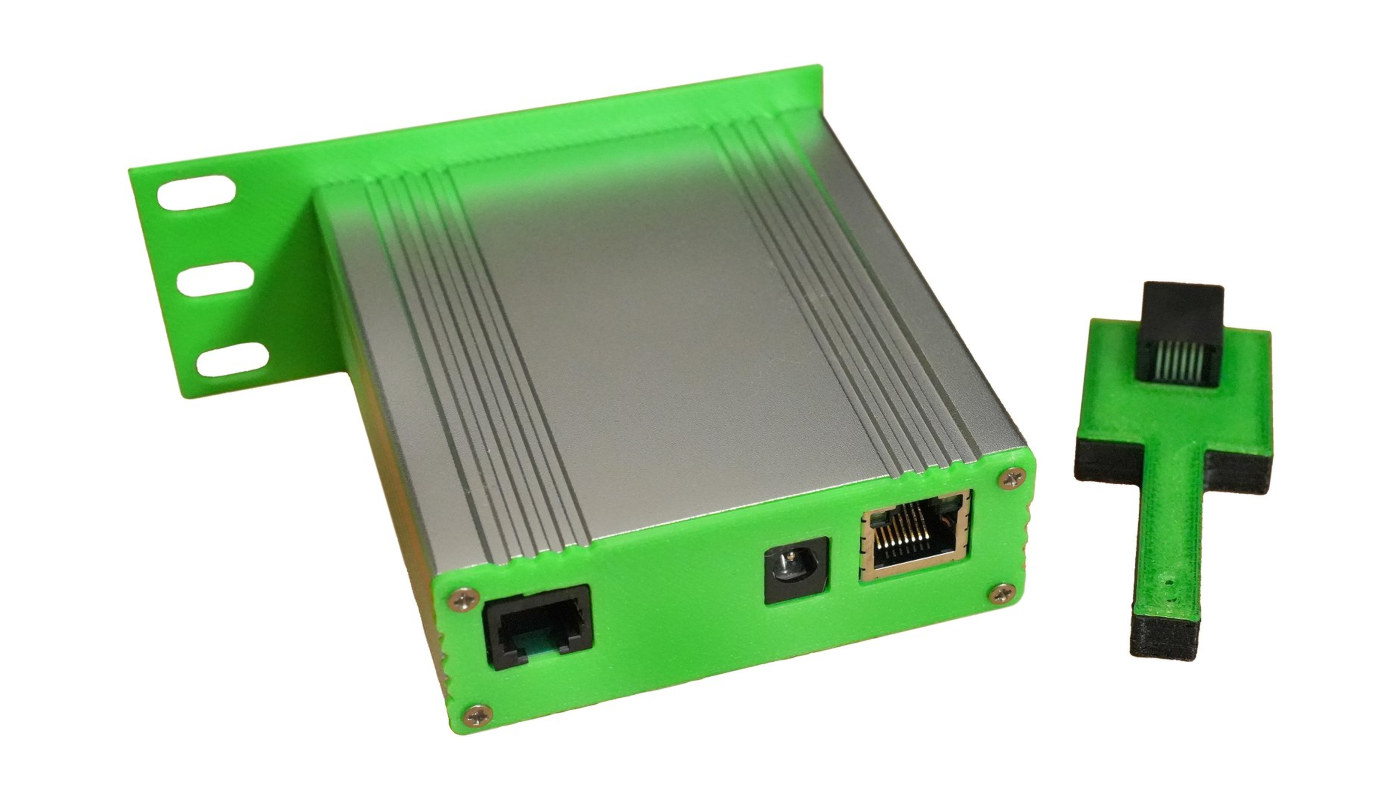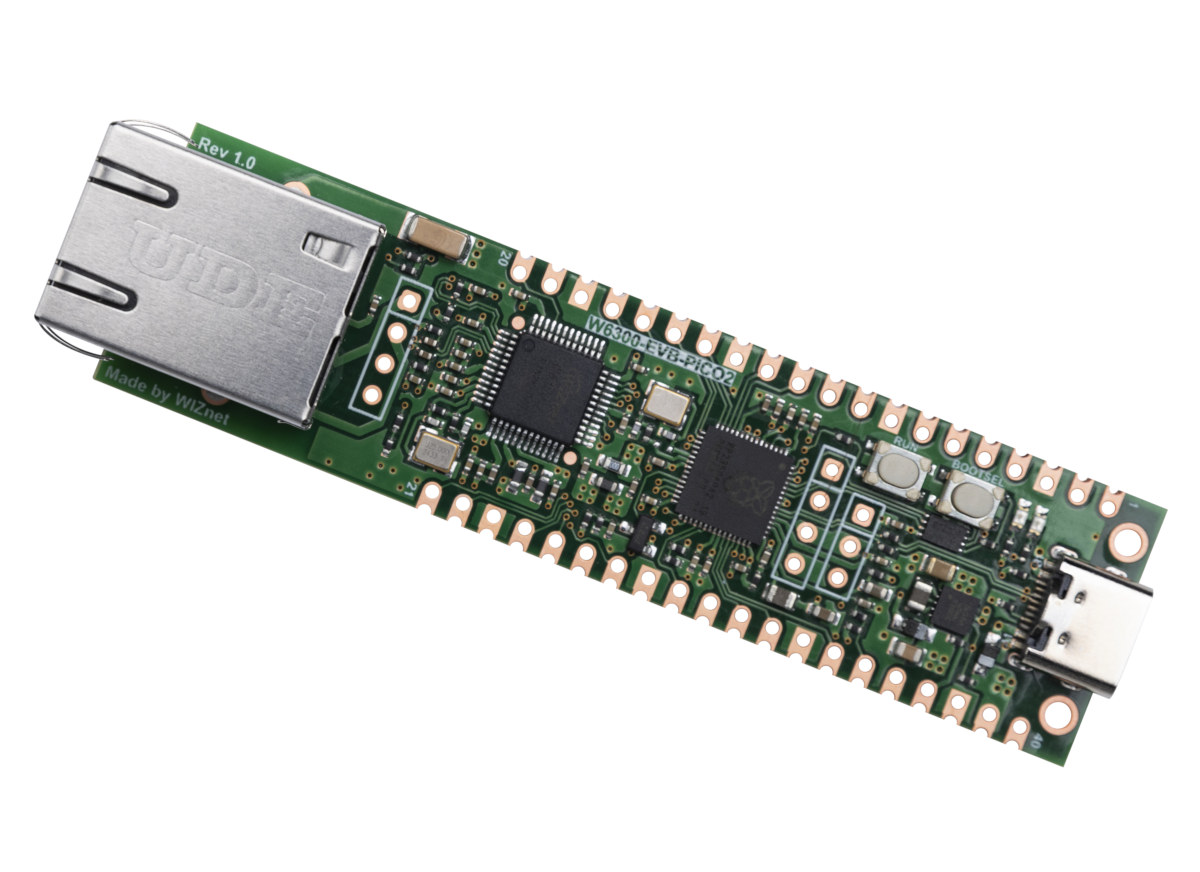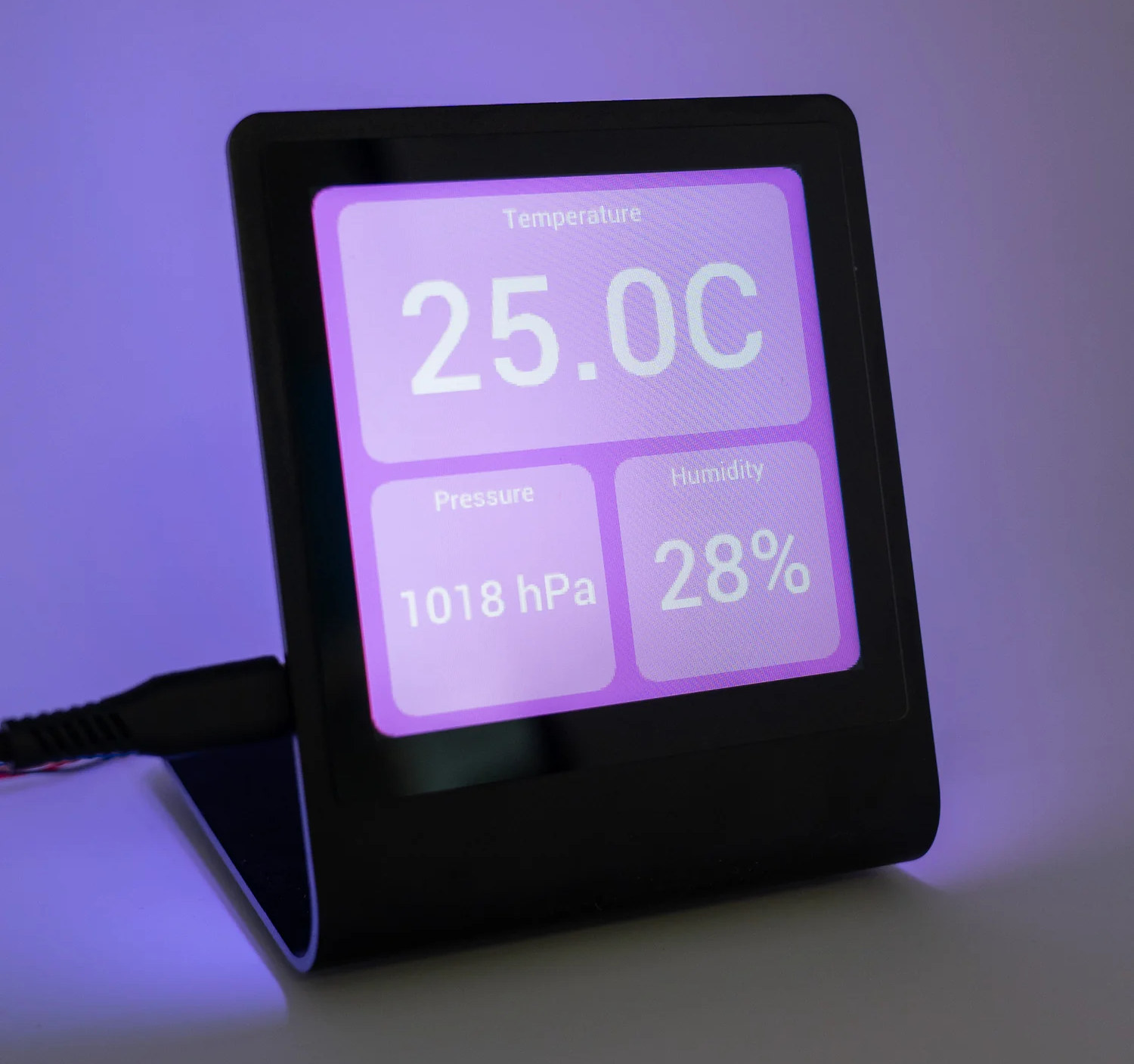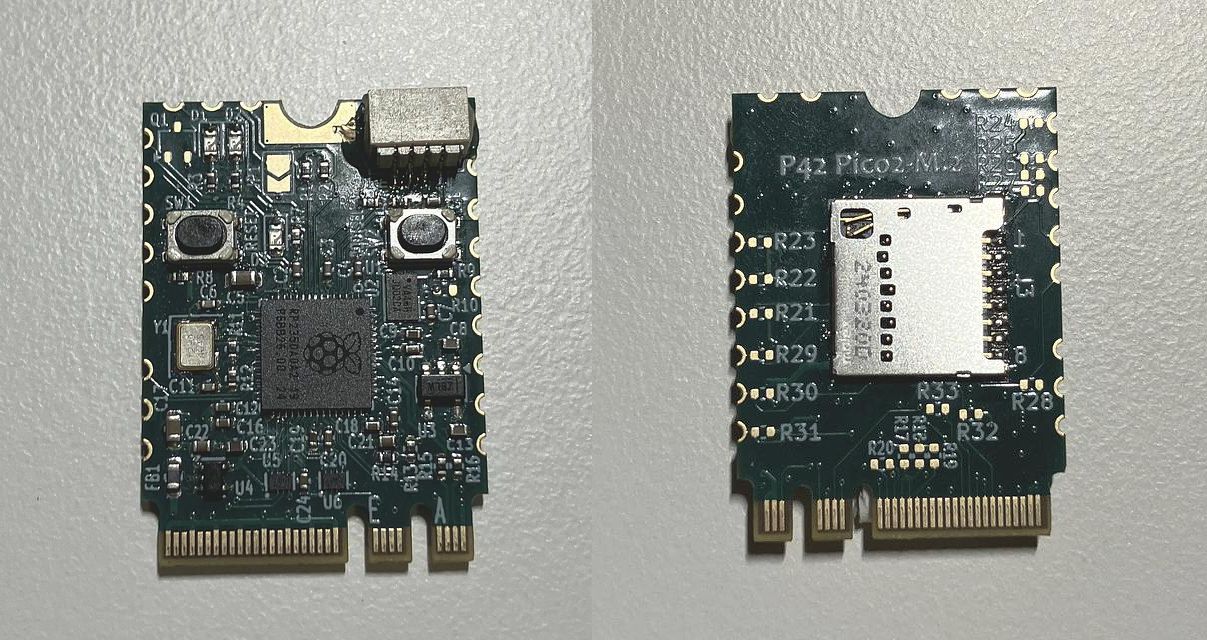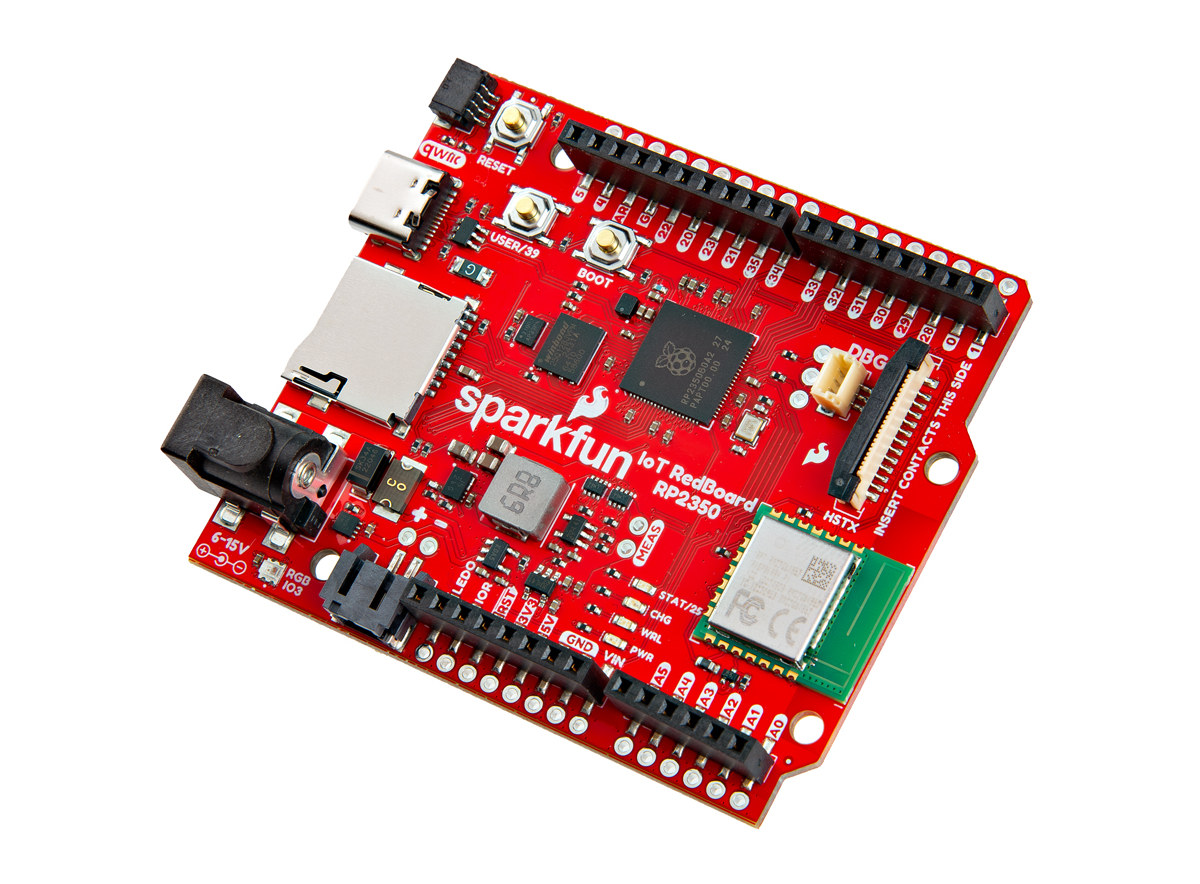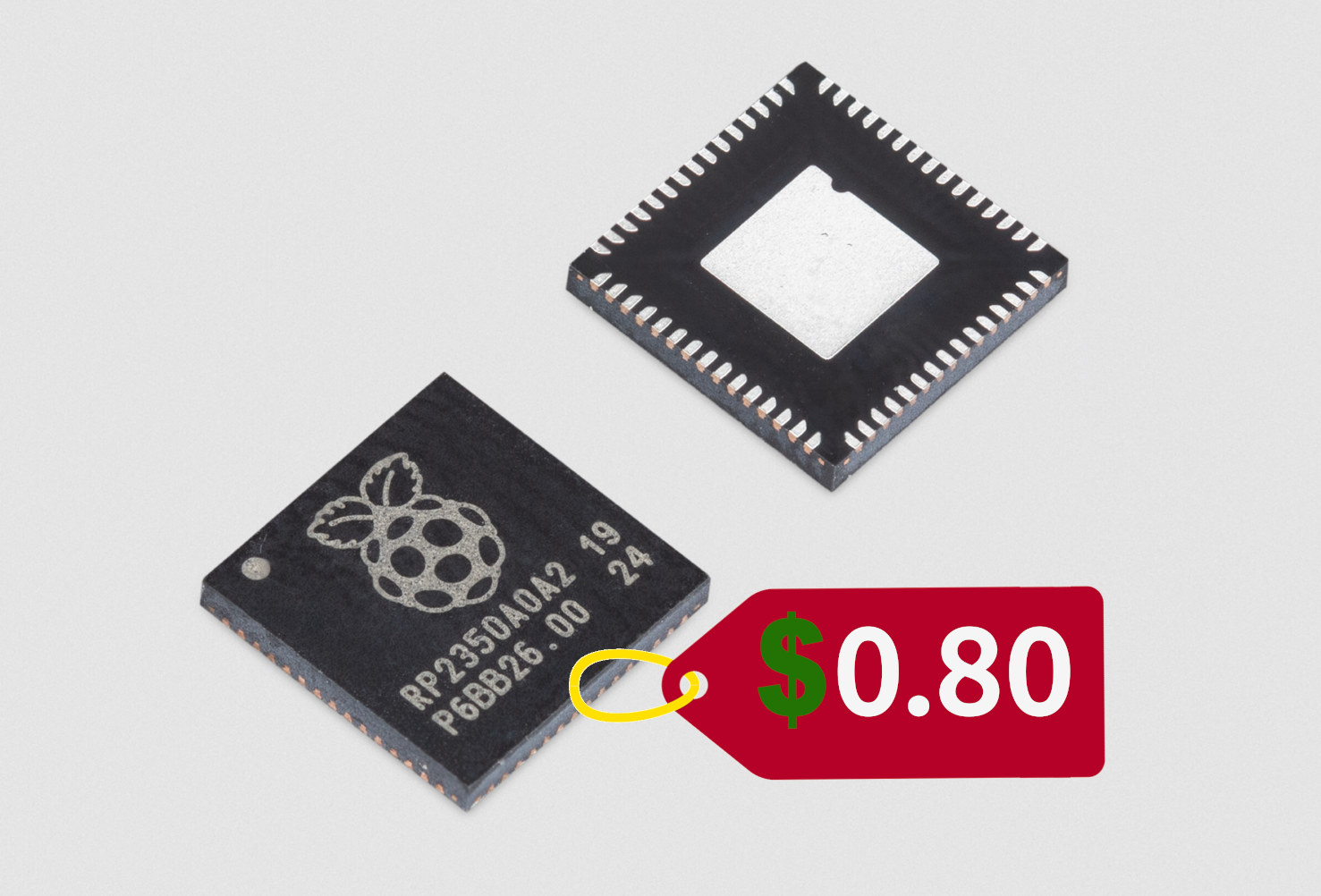Waveshare has recently launched RP2350-CAN, a Raspberry Pi RP2350-powered CAN development board with onboard XL2515 CAN Bus controller and a SIT65HVD230 CAN transceiver. The board supports the CAN V2.0B protocol at up to 1 Mbps, and the XL2515 chip appears to be a clone of the popular Microchip MCP2515 CAN controller. The board includes the same 26 multi-function GPIO pins and USB-C port as found on the Raspberry Pi Pico 2. Other features include a DC-DC buck-boost converter (MP28164), BOOT and RESET buttons, a user LED, a selectable 120Ω CAN termination resistor, and CAN screw terminals. The CAN Bus board targets automotive, industrial control, and robotics applications. Waveshare RP2350 CAN specifications: SoC – Raspberry Pi RP2350A CPU Dual-core Arm Cortex-M33 @ 150 MHz with Arm Trustzone, Secure boot OR Dual-core RISC-V Hazard3 @ 150 MHz Up to two cores can be used in any combination Memory – 520 KB on-chip SRAM […]
Openviro Axe PoE is an RP2040-based environmental sensor for server rooms and cabinets (Crowdfunding)
Openviro Axe PoE is a rack-mountable, open-source environmental sensor designed to measure the temperature and humidity (and air pressure) in server rooms or cabinets with electrical equipment. The device is based on a Raspberry Pi RP2040 board with Ethernet connectivity housed in an aluminum enclosure and equipped with two RJ12 connectors for Bosch BME280 sensors with an accuracy of +/- 0.5°C. It provides better results than sensors placed in a machine that may be impacted by the internal components’ heat dissipation. For instance, the two sensor inputs can be used to measure the temperature and humidity of the intake and exhaust in a server rack. Openviro Axe PoE specifications: Microcontroller – Raspberry Pi RP2040 dual Arm Cortex-M0+ @133 MHz with 264 KB SRAM Storage – 16 MB flash memory Network – 10/100Mbps Ethernet RJ45 port via LAN8710Ai Expansion – 2x RJ12 connector for THP Probes Misc – 3x Buttons Power […]
W6300-EVB-Pico2 board combines RP2350 MCU with WIZnet W6300 QSPI Ethernet controller for 80+ Mbps data rate
WIZnet W6300-EVB-Pico2 is a development board that combines a Raspberry Pi RP2350 MCU with the company’s new W6300 QSPI Ethernet controller capable of 80+ Mbps data rates. WIZNet has made several 10/100Mbps Ethernet controllers over the years that connect to microcontrollers via SPI, but the speed is often limited to 15 to 70 Mbps due to a low SPI clock frequency and small buffers. The WIZNet W6300 Ethernet controller can deliver higher speed thanks to a 150MHz system clock, a QSPI interface with four data lines, 64KB SRAM, and 4KB TX/RX buffer for each of the 8 sockets. W6300 QSPI Ethernet controller W6300 features and specifications: Host Interface – High-speed QSPI (MODE 0/3), system bus with 2 address signals & 8-bit data Internal 32KB SRAM for Tx/ Rx buffers (64KB in total) 8x independent sockets with 64KB Memory 10BaseT / 10BaseTe / 100BaseTX Ethernet PHY Integrated Auto negotiation (Full and […]
Pimoroni Presto – A Raspberry Pi RP2350-powered 4-inch wireless desktop touch display
Pimoroni Presto is a 4-inch desktop color touch display powered by a Raspberry Pi RP2350 microcontroller, and equipped with a Raspberry Pi RM2 wireless module for WiFi 4 and Bluetooth connectivity. The display comes with 16MB of SQPI flash and 8MB of PSRAM, seven RGB LEDs for ambient lighting, a microSD card slot, a piezo speaker, a Qwiic/STEMMA QT connector for expansion, a USB-C port for power and programming, and a 2-pin JST connector for an optional battery. Pimoroni Presto specifications: Microcontroller – Raspberry Pi RP2350B MCU CPU Dual-core Arm Cortex-M33 @150MHz with Arm Trustzone Dual-core 32-bit Hazard3 RISC-V @ 150MHz Up to two cores can be used at the same time Memory – 520KB SRAM Package – QFN-80; 10×10 mm Memory – 8MB PSRAM Storage 16MB QSPI flash MicroSD card slot Display – 4-inch square IPS LCD screen with 480 x 480 resolution, capacitive touchscreen Wireless – Raspberry Pi […]
T-Pico-2350 is a fully integrated devkit with Raspberry Pi RP2350, ESP32-C6, 2.33-inch color touchscreen display, and HDMI video output
LILYGO T-Pico-2350, also called the T-Pico2, is a fully enclosed devkit based on Raspberry Pi RP2350 MCU, an ESP32-C6 SoC for wireless connectivity, a 2.33-inch capacitive color touchscreen display, and an HDMI (DVI) video output port. The design is an update to the T-PicoC3 introduced in 2022 with the case design of the T-Display S3 Pro, and the devkit also features a microSD card slot, a USB-C port for power and programming, two GPIO headers, a 13-pin GPIO FPC connector, two Qwiic I2C/UART connectors, and a PMU for battery management. T-Pico-2350 specifications: Microcontroller – Raspberry Pi RP2350A CPU Dual-core Arm Cortex-M33 @ 150 MHz with Arm Trustzone, Secure boot OR Dual-core RISC-V Hazard3 @ 150 MHz Up to two cores can be used in any combination Memory – 520 KB on-chip SRAM Storage 16MB SPI flash connected to RP2350 MicroSD card slot Display – 2.33-inch color IPS LCD (ST7796S SPI […]
P42 Pico2 M.2 – A Raspberry Pi RP2350 board in M.2 form factor
The P42 Pico2 M.2 may look like an M.2 module, but it’s actually a Raspberry Pi RP2350 development board in M.2 2230 form factor whose edge connector exposes USB, UART, I2C, and control I/Os. The board ships with a 2MB SPI flash and complies with voltage levels defined by the M.2 specification, with some of the interfaces running on 1.8 V. The SWD interface, +3.3 V, GND, and 16 IOs are accessible on castellated pins, and there’s also a QWIIC connector for I2C modules, but it’s not populated by default. The board also comes with a microSD card slot on the bottom and the usual Reset and BOOT buttons. P42 Pico M.2 specifications: SoC – Raspberry Pi RP2350A CPU Dual-core Arm Cortex-M33 @ 150 MHz with Arm Trustzone, Secure boot OR Dual-core RISC-V Hazard3 @ 150 MHz Up to two cores can be used in any combination Memory – 520 […]
SparkFun IoT RedBoard – Raspberry Pi RP2350 or ESP32 WiFi & Bluetooth boards with Arduino UNO R4 form factor
SparkFun has just launched the “IoT RedBoard – RP2350” and “IoT RedBoard – ESP32” boards with Arduino UNO R4 form factor based on respectively Raspberry Pi RP2350B + RM2 wireless module and ESP32-WROOM-32E WiFi and Bluetooth module. Both boards feature Arduino UNO headers and a Qwiic connector for expansion, a microSD card for storage, battery support, USB and DC jack power input, plus a few buttons and LEDs. The RP2350 board also adds an HSTX connector mainly useful for controlling HDMI or SPI displays. Sparkfun IoT RedBoard specifications: MCU sub-system and wireless RP2350 model MCU – Raspberry Pi RP2350B CPU Dual-core Arm Cortex-M33 @ 150 MHz with Arm Trust zone, Secure boot Dual-core RISC-V Hazard3 @ 150 MHz Up to two cores can be used at any given time Memory – 520 KB on-chip SRAM Memory – 8MB PSRAM Storage – 16MB Flash Wireless module – Raspberry Pi RM2 2.4 […]
You can now buy Raspberry Pi RP2350 MCU for 80 cents and up, RP2354A and RP2354B variants coming soon
The Raspberry Pi RP2350 dual-core Cortex-M33/RISC-V MCU was first unveiled along with the Raspberry Pi Pico 2 in August 2024. Since then we have covered many Raspberry Pi RP2350 news and boards, but the microcontroller was hard to source for hobbyist and low-volume projects, which partially explains why companies like NextPCB had promotions offering free PCBA prototyping services for RP2350 designs. The good news is that Raspberry Pi has just announced general availability for the RP2350 microcontrollers starting at $0.80 per unit for the RP2350A in 3,400-piece reels, or $1.1 in single quantity, so anybody can buy the MCUs from their favorite distributor. The British company also announced the RP2354A and RP2354B variants with 2MB of stacked flash memory would soon be available to select partners and mass production will ramp up later this year. Here’s the current official pricing information for the RP2040 and RP2350 microcontrollers. Users can simply […]



